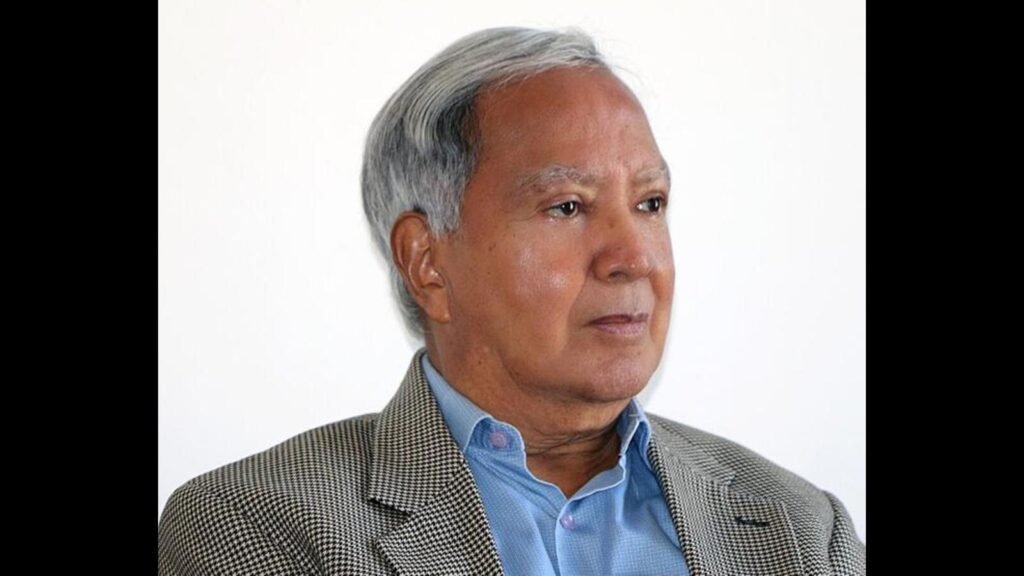
I We don’t normally think of foreign secretaries as authors of detective fiction. But the day may not be far when Krishnan Srinivasan will be better known as the creator of Michael Marco rather than the profound analyst of foreign affairs that was his first career. His eighth Marco novel has just been published. I’ve spent the last week reading it.

Michael Marco is not dissimilar to the great detectives of fiction like Sherlock Holmes, Hercule Poirot, Jane Marple, or Perry Mason. He’s a most unusual but rather appealing character. It’s his eccentricities and foibles that draw you to him. They certainly have in my case.
So, let me introduce you to Mr Marco. Born in Italian Somaliland, he studied law before serving briefly as his country’s ambassador somewhere in southern Africa. Unjustly dismissed from service, he did a stint with the United Nations before moving to India to pursue academic research.
Like his background, there’s nothing dashing about his appearance. Kris describes him as “(a) bent figure in a crumpled dark suit and white shirt that had seen better days, his socks drooping under his trouser turn-ups and over his black shoes that needed polishing”. He has a self-mocking laugh when “little flecks of saliva appear at the sides of his mouth”. Marco has “sparse gray hair, his face is creased by a few tribal scars and wreathed in a cherubic smile”.
Marco’s haunt is a hotel called The Wise Owl on Kolkata’s Purna Das Road. There you find him invariably sipping tomato juice, “staring into space with the infinite patience of a desert anchorite, his tie askew, the top shirt button undone and his shoe laces loosely tied”.
However, Marco is far wiser and more thoughtful than his appearance betrays. He has a penchant for Latin proverbs. His knowledge of Shakespeare is profound and pertinent. He often quotes from the Psalms and the Bible.
He’s soft-spoken, self-effacing, gentle and polite. His turns of phrase have a delightful archaic touch. “I have been found wanting in politeness,” he says to bemused policemen who probably won’t grasp his meaning.
I suspect Kris is rather fond of Michael Marco. Although he doesn’t dominate the plot and tends to hover in the background, Kris’s affection for his creation is unmistakable. And a bit like Kris himself, Marco always makes the right connections, recognizes the scattered hints, and correctly recalls the telling moments of the past. He thus inevitably arrives at the solution.
But Kris is not always polite about him. Sometimes he can be quite politically incorrect. When flustered, Kris says Marco “looks as pale as a black Somali man could look in the circumstances”.
However, unlike Holmes, Poirot and Marple, Marco doesn’t dominate Kris’s stories.
In the eighth novel, Kolkata Crimes, the narrator is another detective, Koel Deb, a young, attractive and physically handicapped former senior police officer practicing as a private detective in the West Bengal. capital.
Kris is very particular about her shoes. They vary from blue Skechers, to Kailee P medium heels, to Ralph Lauren Barnsbury Slip-ons, to black Shoetopias with small heels. It makes me wonder if as foreign secretary he spent his meetings studying the footwear of his interlocutors?
Through the eyes of Koel Deb, Kris gives us fascinating descriptions of the people she meets. For instance, Shikha Sengupta’s “face was proud and full, her hair falling in gentle waves over her shoulders, her smile normally glittery”. Paritosh Chowdhury, on the other hand, has “a papoose-like victimhood face with abundant facial hair that compensated for a limited growth on his scalp”. Whereas Anirban Raha’s “face was dominated by a pointed nose with flared nostrils”. He also has “large teeth that gave him a sturdy livestock look”.
I had no idea Kris observed people so minutely. If he ever writes his memoirs, there could be a lot of people worried about how he chooses to describe them. But will he? I would encourage him to do so.
Karan Thapar is the author of Devil’s Advocate: The Untold Story. The views expressed are personal






